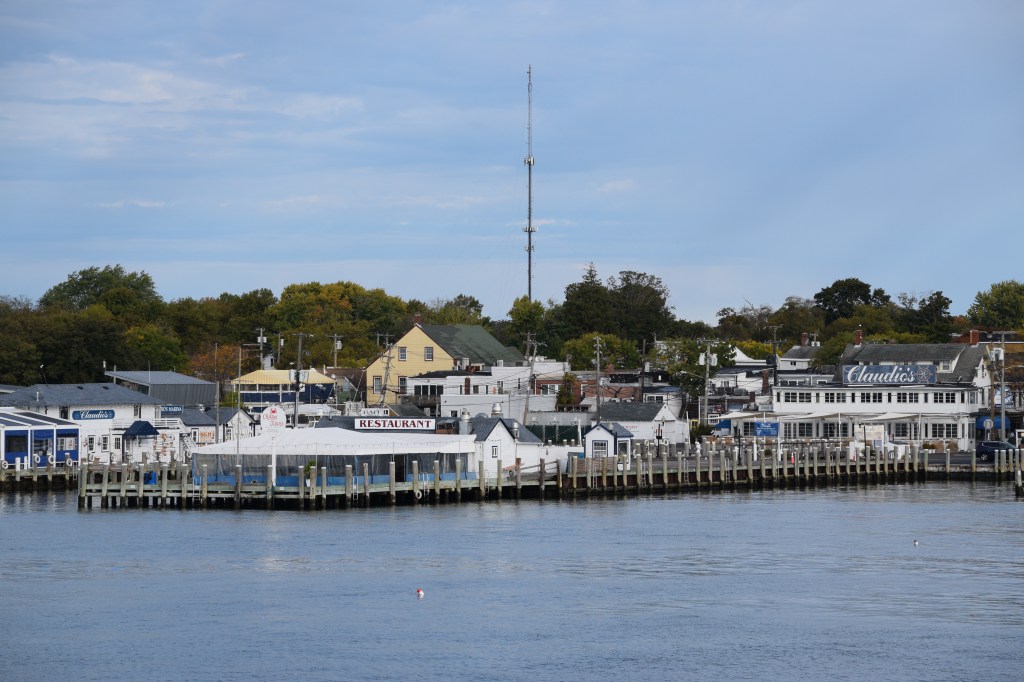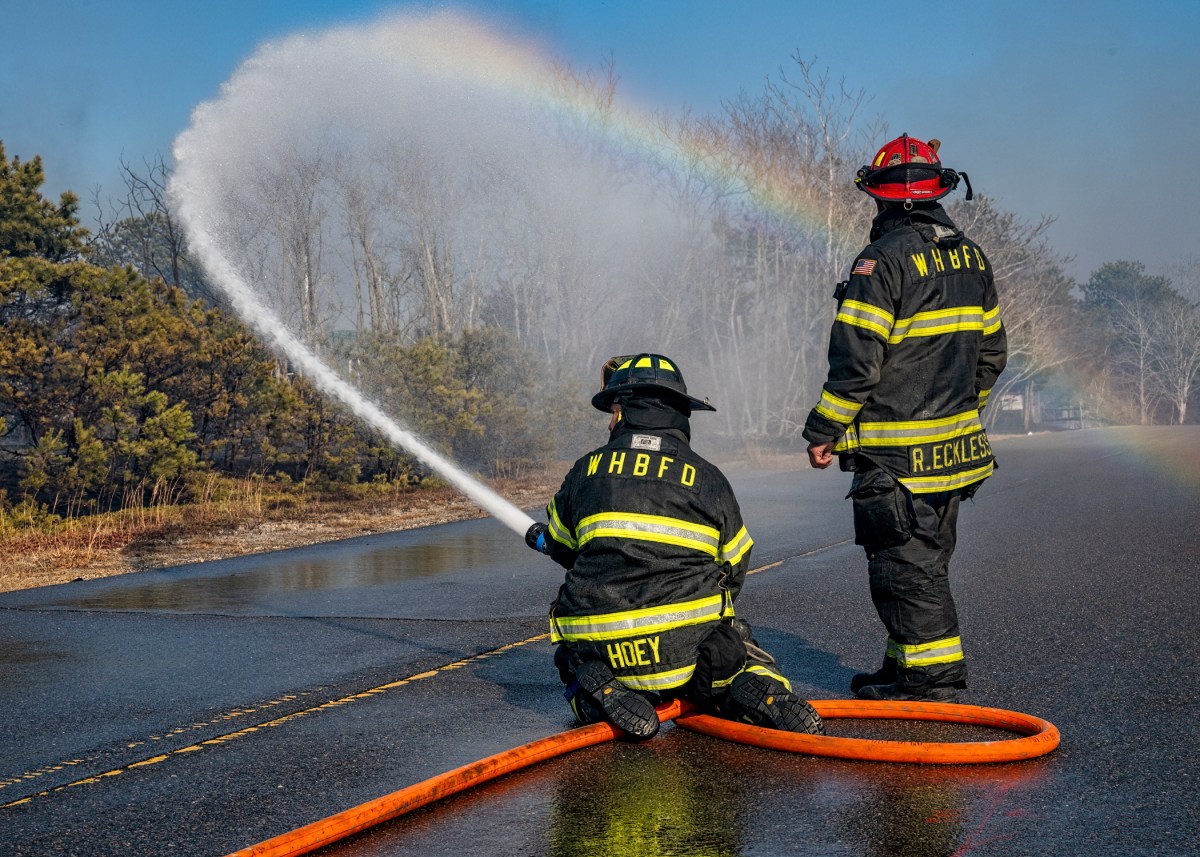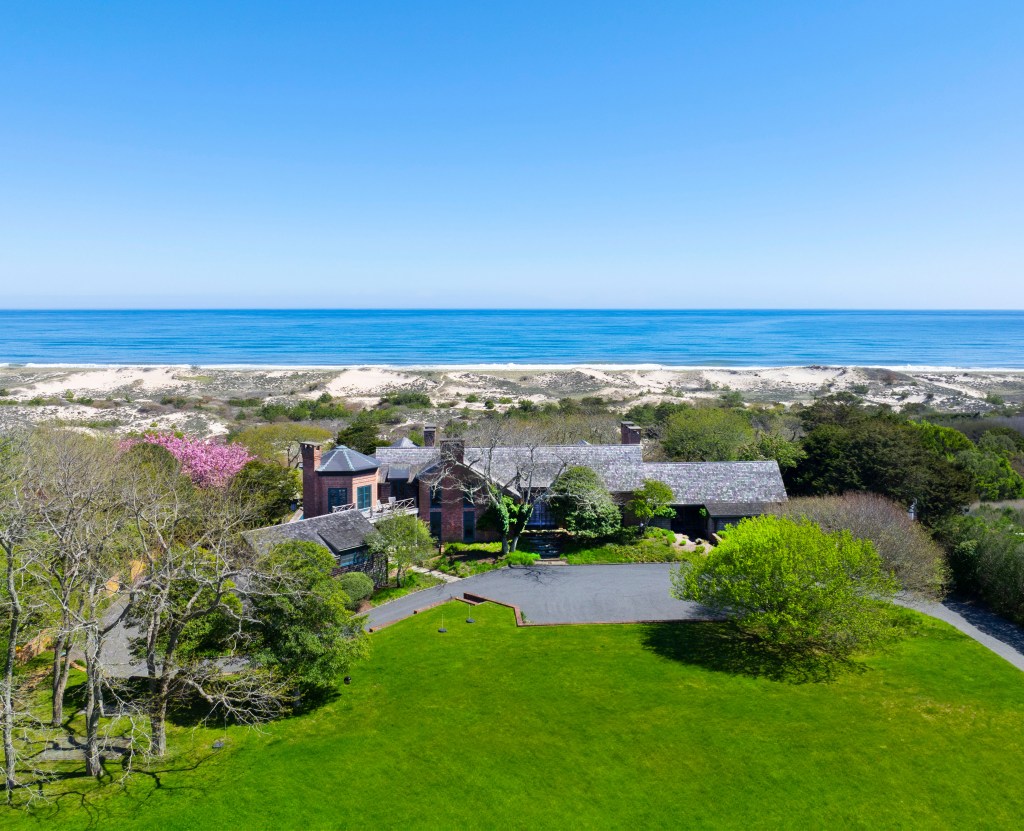Shinnecock Voices: Mishoon Race Sets a Pace for New Beginnings
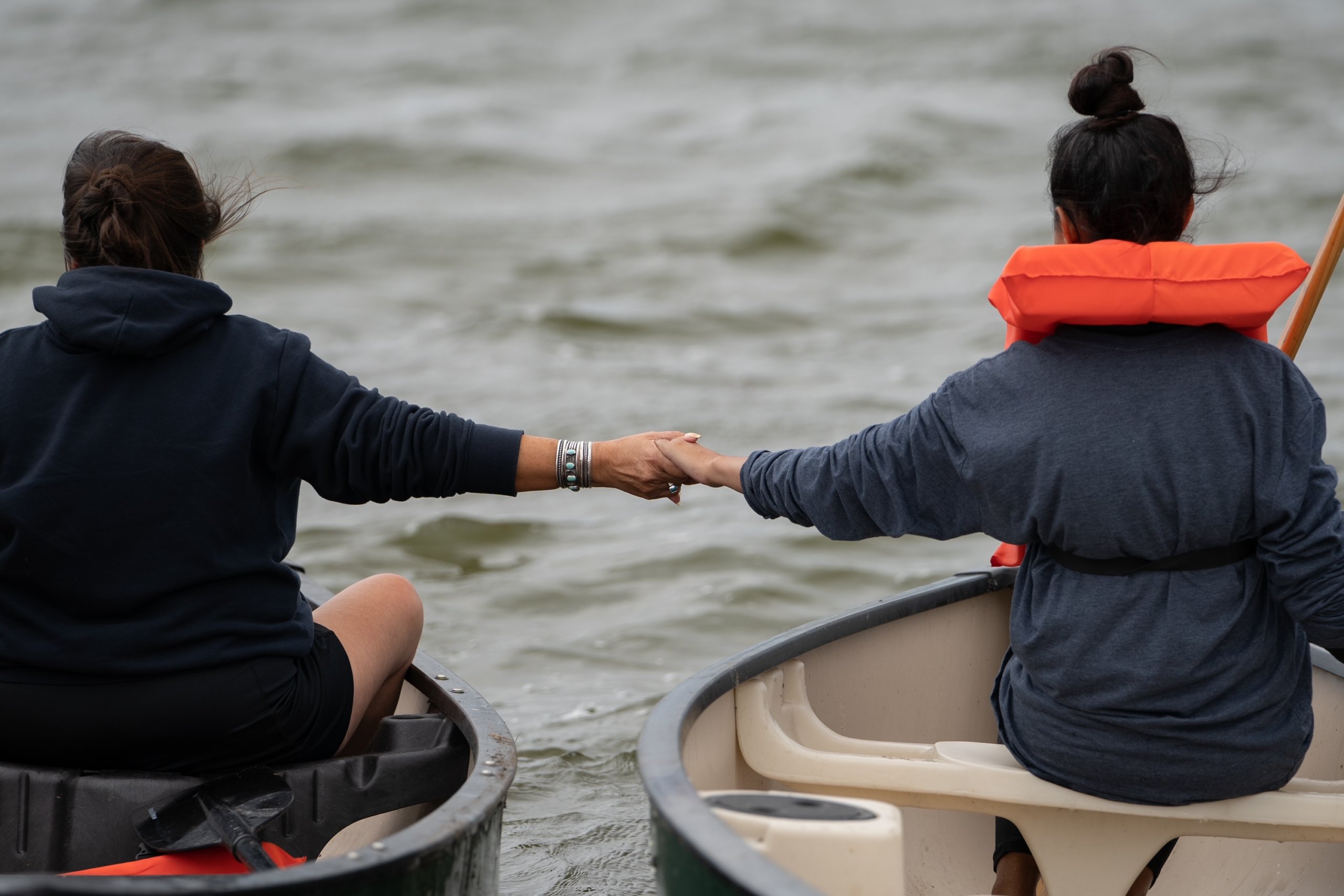
It will be an early one again this Sunday, September 4–7 a.m. to be exact — when members of the Shinnecock Nation, my people, gather on the shore of Shinnecock Bay to hold our annual Shinnecock Whalers Mishoon Race. The Mishoon, or canoe race, is now in its seventh year, and has grown from a small group of tribal members interested in rebuilding ancestral traditions, to a large gathering of Shinnecock and sister tribe members attending our annual Shinnecock Indian Powwow.
“We have been connected to the water since the beginning of time,” founder Christian Weaver said. “Not only does it provide our sustenance but also is medicine. Its natural calming elements and health benefits are key to our survival as a people, which was especially vital during the pandemic, he explained.
The annual Mishoon race celebrates Indigenous peoples’ long, harmonious relationship with the water, the bringing back of fishing traditions, and the collaborative work seen in canoe culture. “When we journey out in a canoe, that’s one thing, but bringing it home is another — our people have this gift to keep for the rest of their lives,” Bullock said. For Indigenous people, as Weaver noted, water is healing, and in fact, is integral to our idea of life itself.
“When Chris Weaver had this idea, he reached out to people in the community who have done the work of regenerating the Mishoon tradition,” said fellow organizer and a lead paddler, Chenae Bullock. “By doing this, he’s brought us all together to share oral history, and share the canoe story.”
By way of history, our ancestors would make long journeys to other tribes, respecting the local traditions and languages of those they visited. They would camp on shore, then exchange gifts, meals and prayers. This traditional way is still honored today by paddlers like Bullock who along with other tribal members often spend days on the water annually, traveling by water to the lands of our sister tribes. The coastal waterways were our highways, our path to connect to family. And some paddlers, they still are.
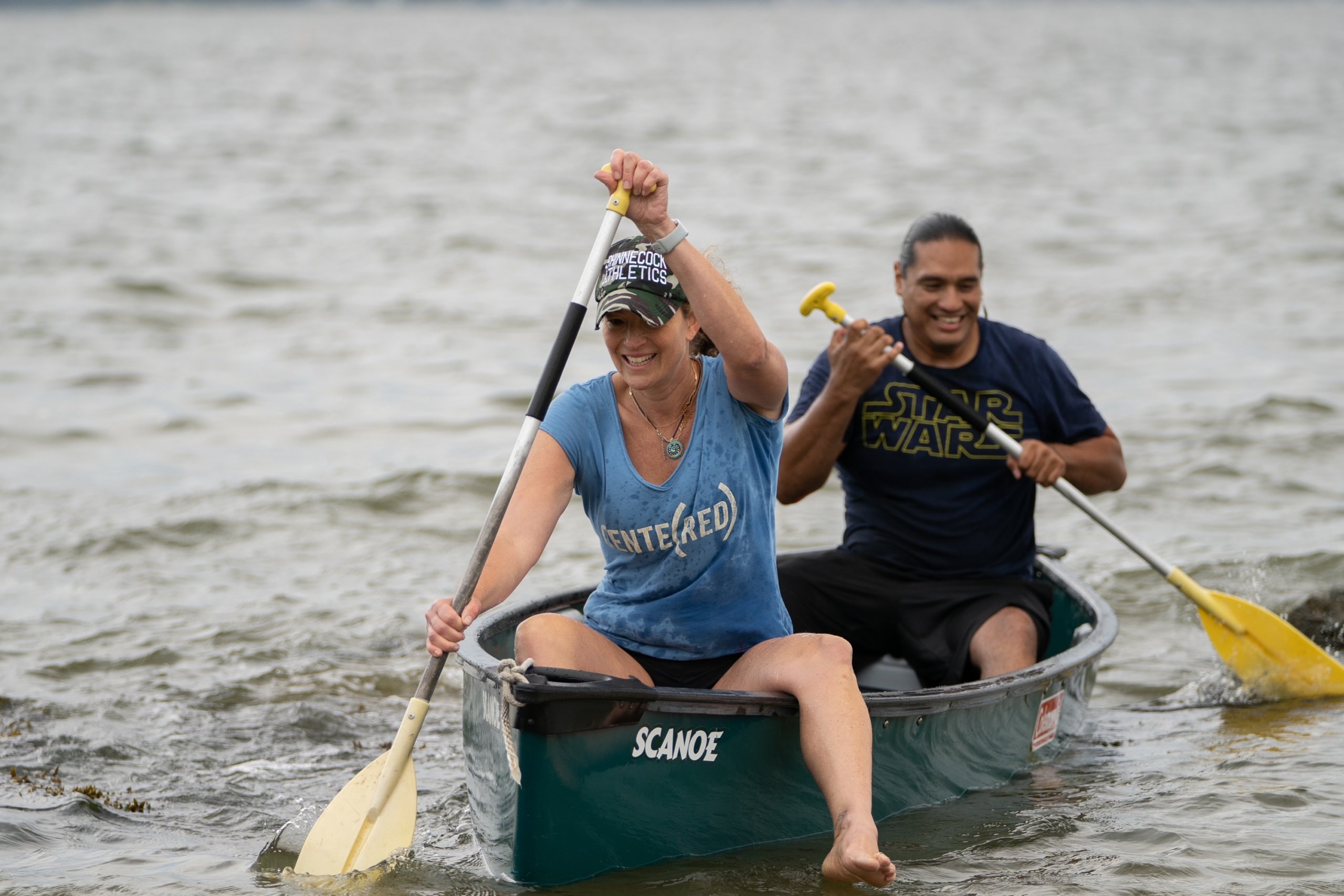
Indigenous water rights are a frequent topic of discussions about Native American sovereignty, and since the 1630s, Indigenous people have been deprived of these rights both in Southampton and throughout the world. As we are from a whaling culture, the Shinnecock and other coastal Indigenous people could navigate through any waters, finding our way home. And now, many of us still do.
In some ways, the annual Shinnecock Powwow weekend when the Mishoon takes place is an actual homecoming, and one that we haven’t been able to replicate in nearly three years. When people couldn’t gather inside or close together, and time felt as fluid as in the unconscious mind, they could still be on the water — just like we did eons ago.
“I feel that just within the two pandemic years we’ve had, so many things have happened globally, from mental health to the environment, to people’s thoughts about sustainability,” said Bullock. “As Shinnecock people, we never stopped thinking about the water, and being more present in the water. During pandemic, we actually had the largest turnout for the Mishoon that we ever had, which was a true blessing,” she remembered. “We had time, which is something that we don’t always have. The pandemic in essence stopped time, and it wasn’t the usual rat race.”
In the past two years of paused international activity, the race continued, and, as Bullock notes, it grew. “More people know about the canoe race, more have practiced to be in the canoe race, and the water is excited about the canoe race,” she said. “When we first started, there really weren’t a lot of people for whom this was a priority. But over the years, we’ve been seeing the crowd grow, and in 2021 was the largest we had of Shinnecock and other family.”
2019’s Mishoon was my first year, and I’ve returned ever since, when the race was held. Though I rowed in an eight-(wo)man for a time in college, and thought I could paddle a canoe, last year, my teammate and cousin Ginew Benton and I were bested with ease for second place by our tribal elders, the very skilled Charlie Smith and wife (Ginew’s mom), Sherry.
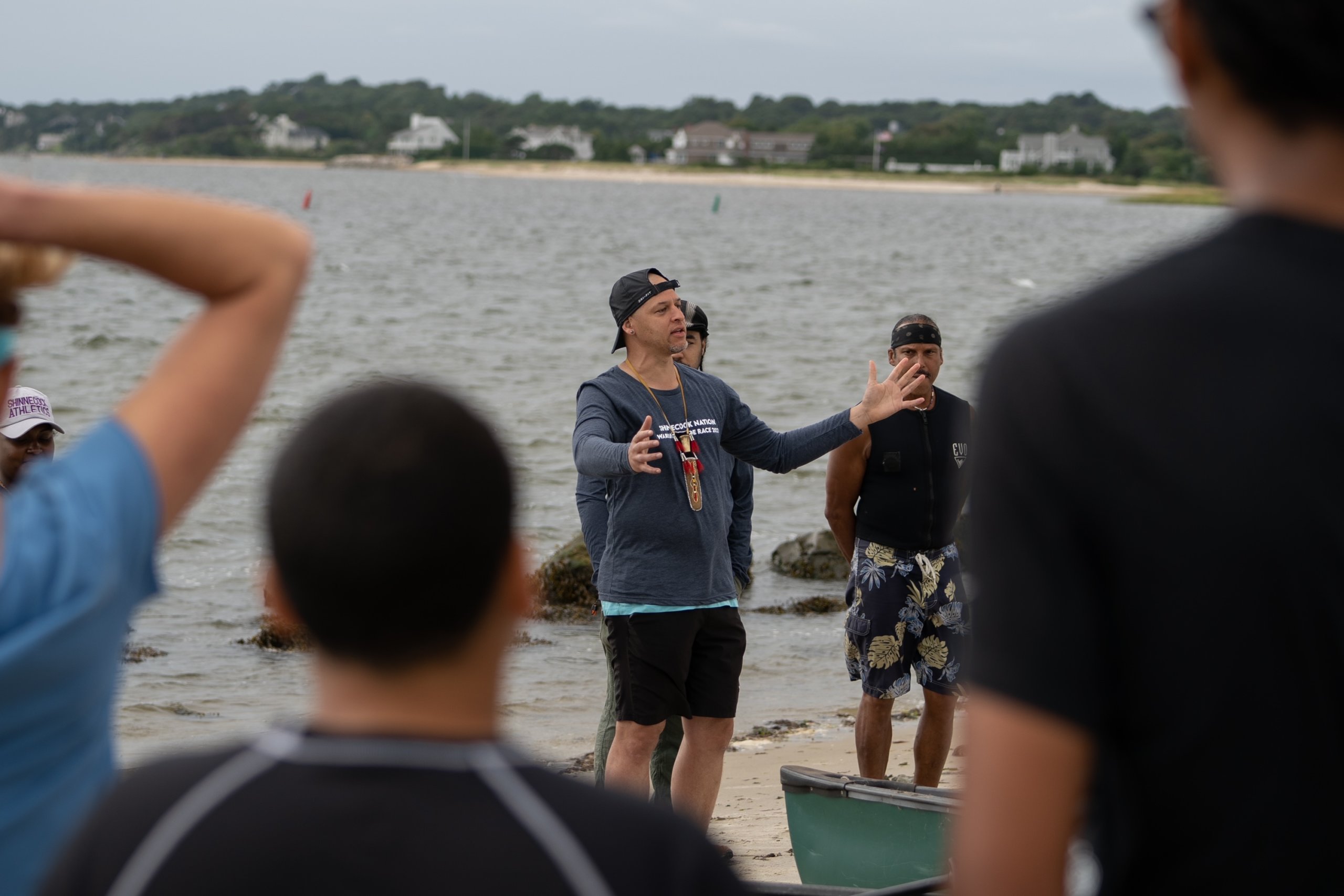
This year, the 7 a.m. start will again draw sleepy tribal members clutching cups of hot coffee provided by organizers, canoes driven down to the beach, and general greeting of long-time friends and relatives we haven’t seen in a year — or three — in some cases, now.
Many Indigenous cultural traditions are shown to the public at our annual powwow, but this sacred paddling of our canoes is arguably less visible but no less important. Opening with a prayer led by a tribal healer and medicine man, the race has a very private and sacred feel, and it is that — but make no mistake, it’s meant to be a fun way to remind our people (and any invited spectators) that we are still very much in touch with the pieces of our ancient selves that are vitally important.
“The world is paying attention to what we’re doing, and it makes me proud that there are people in our own community who have an interest in not only the Mishoon tradition itself, but the water, and putting the prayers on the water,” said Bullock. “It’s a refreshing moment to gather at the dawn, and have a cup of coffee, or tea, and reconnect. Now, we have a lot of elders who come out on the sand with a cane, and even little ones can participate,” she noted. “We have the ability to continue our tradition, and having a presence in the water exercises our sovereignty. These races also teach you about yourself — are you focused on the money, or activating yourself in the space? It’s a nice way to encourage people to remember what matters.”
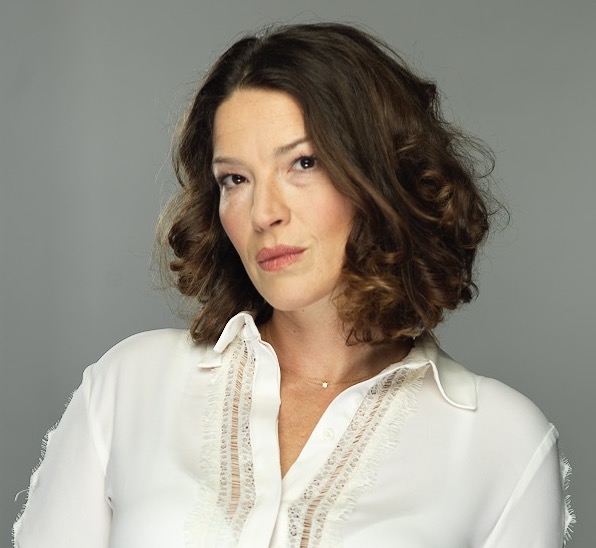
Alli Hunter Joseph is a journalist, producer and member of the Shinnecock Indian Nation. She has taken second and third place in the Mishoon race so far, and hopes for at least second this year.
